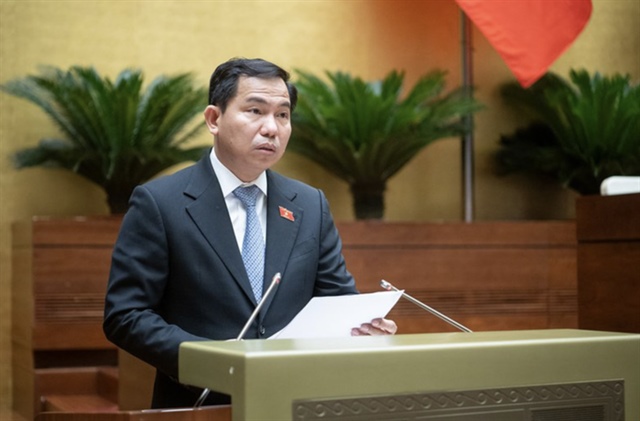|
In Vietnam, VAT proposed for goods imported via e-commerce platforms
The National Assembly (NA)’s Finance - Budget Committee has proposed weighing the imposition of value-added tax (VAT) on commodities imported by e-commerce platforms such as Shopee, Lazada, Tiki and TikTok.

Chairman of the National Assembly’s Finance - Budget Committee Le Quang Manh. Photo: Quochoi.vn
|
Le Quang Manh, chairman of the committee, put forward the proposal at the NA sitting on Monday afternoon when he presented a report on the examination into the draft of the revised VAT Law.
Statistics from state-run Vietnam Posts and Telecommunications Group, better known as VNPT, indicated that in March 2023, some four or five million orders were transported from China to Vietnam every day on average. Each order was valued at VND100,000 ($3.9) - VND300,000 ($11.7).
An average of US$45-63 million worth of goods was circulated on these e-commerce platforms each day.
Manh said that the draft includes a regulation in which gifts, movable assets, cross-border goods enjoying import tax exemption are not subject to VAT.
In fact, the exemption of import duties on gifts is stipulatedint Decree 134 dated 2016 on instructions on the export and import tax law.
Notably, the VAT waiver following the exemption of import tax in accordance with the law on export and import taxes is still being adjusted in line with the prime minister’s Decision 78 dated 2010.
The decision allows imports worth less than VND1 million ($39) sent via express delivery services to be exempted from import tax and VAT.
After examining the regulation, the committee realized that the exemption of VAT on imports with low value was based on the fact that tax revenue is trivial compared with the fee of collection management at customs agencies and tax compliance costs.
In the past, the number of low-value orders imported into Vietnam was not large. However, with the current explosion of cross-border e-commerce, the figure has multiplied, he explained.
Meanwhile, many nations have ended VAT waiver rules on imports with low value to ensure tax collection and create a fair business climate between local goods and imported commodities.
Therefore, the committee hinted at learning from other countries about the common trend to remove the VAT exemption to increase budget revenue.
At the sitting, other proposals were presented, including supplementing regulations that allow exempting goods which are subject to import tax waiver and are traded by residents in border areas, and imports set for donations from VAT.
According to a report made by Minister of Finance Ho Duc Phoc, the number of goods enjoying VAT waiver or subject to a 5-percent VAT rate in accordance with the prevailing law remains huge.
Tuoi Tre News
|